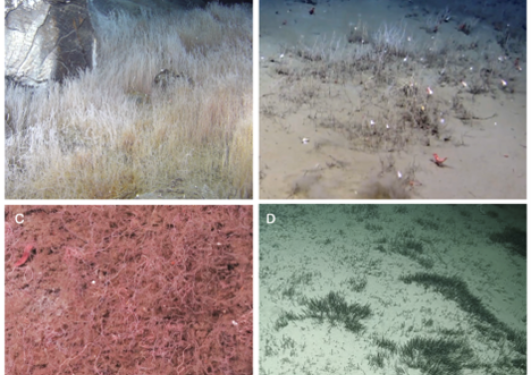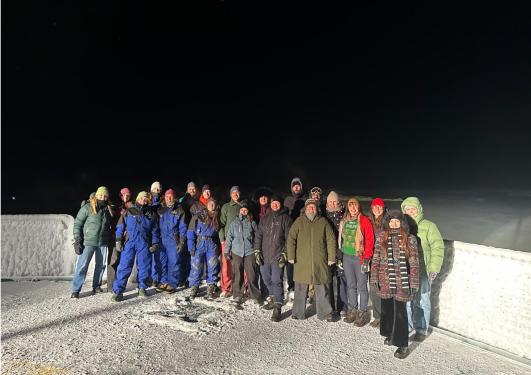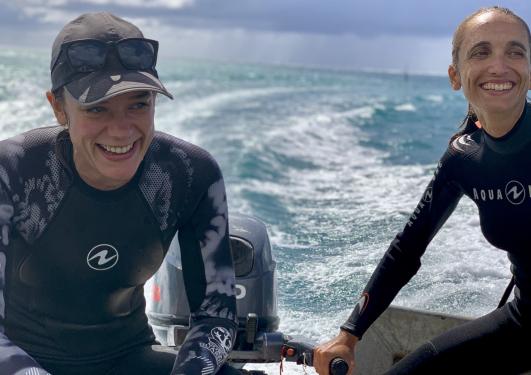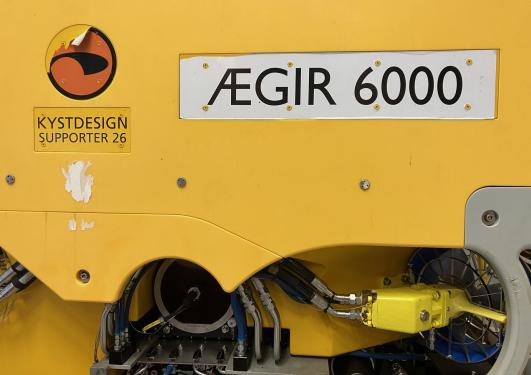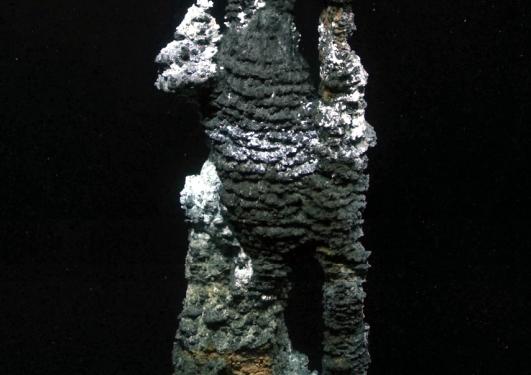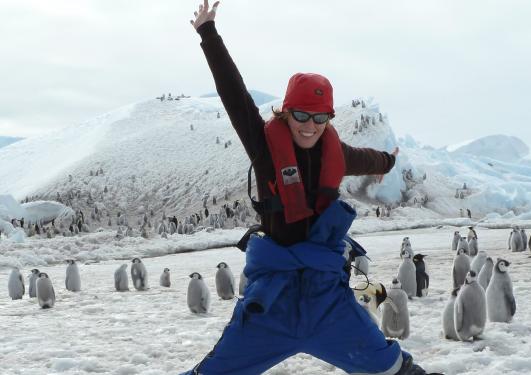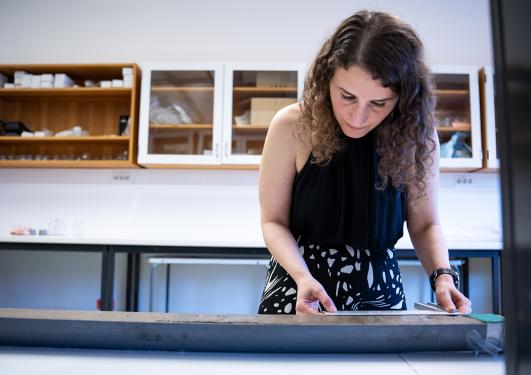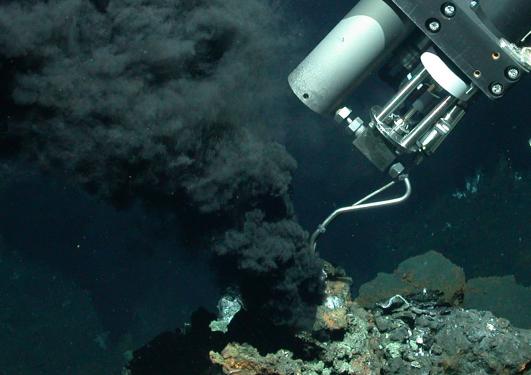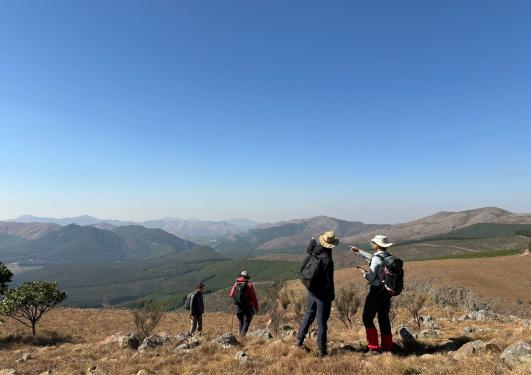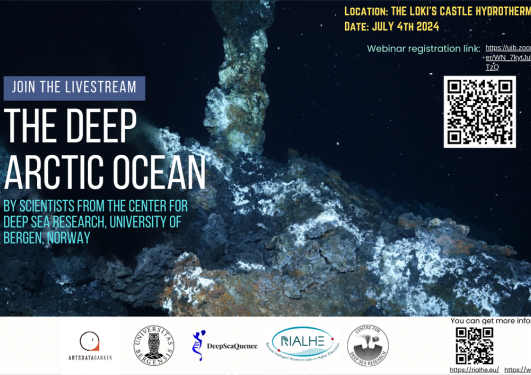News archive for Department of Earth Science
The start of the year marked the launch of WormFEST — a groundbreaking project exploring the fascinating worm forests found deep underwater near Arctic hydrothermal vents and cold seeps.
The University of Bergen (UiB) will host another seven international research fellows after a very successful application round in this year’s competition for MSCA funding from the EU. The grants will fund the researchers' stay at UiB for two years.
Rogue or freak waves (monster waves) are exceptionally large waves that can suddenly loom into existence, seemingly from nowhere. Are these waves truly different from ordinary storm waves, or are they just what you should expect to see if you wait long enough?
In collaboration, five researchers from several research institutions in Bergen have succeeded in attracting the largest international conference in deep-sea biology to Bergen in 2028. The team will jointly organize the conference, supported by local professional network Bergen Bathysphere.
The CDeepSea Ultima Thule expedition on the R/V Kronprins Haakon left Longyearbyen on November 26, 2024 with the primary objective of mapping and sampling in the Lena Trough. However, the researchers and crew onboard were prepared for challenging sea ice conditions given the time of year and the northern latitudes... and that is what they encountered!
On the beautiful island of Milos (Greece), a recent field course offered CDeepSea students a unique opportunity to dive deep into the world of mineral deposits and hydrothermal systems. With an impressive ratio of 8 instructors to 14 students, the participants received training on a wide variety of topics relevant for minerals and mineral exploration, from economic geology and geochemistry to... Read more
First-year students in the Bachelor’s program in Earth Science and Informatics got hands-on experience with drone-flying while enjoying the magnificent scenery from the top of Bergen.
Coral reefs produce a lot of oxygen during the day (thanks to photosynthesis), but at night the oxygen levels decrease. Can this threaten fishes at the reef, or do they have strategies to survive? To find out we spent six months of fieldwork and experiments on the island of Moorea in French Polynesia.
At the end of September it was announced that the NORMAR-II grant for upgrades to the Ægir 6000 ROV system has been approved! This funding ensures the Centre’s continued access to this essential deep-sea infrastructure and will allow us to keep the ROV system state-of-the-art. We’re looking forward to many more dives with upgraded equipment, pushing the boundaries of deep-sea exploration.
Starting October 1, the new name will be the Faculty of Science and Technology. We will certainly celebrate this!
The GoNorth 2024 expedition concluded last week after a three-week scientific voyage, from August 29 to September 19, exceeding expectations with a wealth of new data, thanks to favourable ice and weather conditions.
Our colleague at the Centre, deep-sea biologist Pedro Ribeiro, is onboard the RV Maria S. Merian participating in a research cruise led by the German Centre for Marine Environmental Sciences (MARUM) to explore and investigate the Jøtul hydrothermal vent field.
The Antarctic ice shelves – the floating glaciers surrounding most of the continent – are melting from below as oceanic currents bring warm water into the cavity. But how and how fast is the ice melting? In this Ocean Science Bar, you will learn why Antarctic ice shelves matter, about what happens below them, and about what it’s like to do fieldwork ”down south”.
Light is probably the most varying environmental variable in pelagic ecosystems, and the most ignored in ecological studies. In this Ocean Science Bar, you will learn how light structures the distribution of zooplankton and fish.
By reconstructing past changes in ocean circulation and climate, paleoceanographer, Nil Irvali, aims to better understand the ongoing changes and improve predictions of our future climate.
A new study led by Associate Professor Eoghan Reeves at the Centre for Deep Sea Research, just published in Geochimica et Cosmochimica Acta, sheds light on one of the pillars of chemosynthetic life at deep sea hot springs – the dissolved natural gas molecule, methane.
One of the best things of being a researcher is when you get the chance to broaden your horizons. This summer, geochemist Desiree Roerdink traveled to the Barberton Greenstone Belt in South Africa and dove back into the research field of sedimentology to find out how sulfate minerals formed on ancient shorelines, more than 3.2 billion years ago.
Watch the recording of our live-streamed remotely-operated dive at Loki's castle hydrothermal vent field in the Arctic, 2300 meters below sea level.
Pages
- 2025
- 2024
- 2023
- 2022
- 2021
- 2020
- 2019
- 2018
- 2017
- 2016
- 2015
- 2014
- 2013
- 2012
- 2011
- 2010
- 2009
